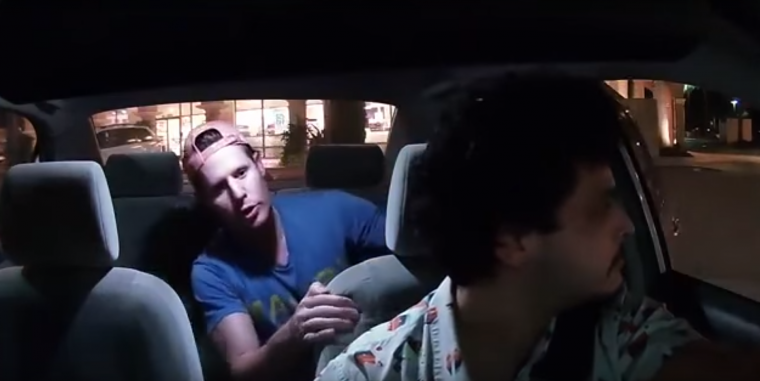An Uber-Like Service Just for Women: Good Idea, or Bad Idea?
Uber has become more or less a household name lately, as its wild success has caused it to spread across the globe. As a peer-to-peer ride hailing app, it has provided extra money for drivers and a safe way home for those out for a night on the town.
However, like a roadside fishstick stand only equipped with a heat lamp, this lovely idea has been having some serious problems. Beyond the fact that taxi drivers the world over absolutely hate Uber (plus the fact that Uber drivers aren’t particularly happy with Uber, and have had to fight for the right to be considered “employees” and not “contractors”), drivers and passengers alike sometimes feel unsafe in Uber cars.
And who can blame them, when we have incidents like that Taco Bell Executive getting too drunk to communicate with his Uber driver, and then trying to beat the heck out of him (and later suing for $5 million, claiming video of the incident “ruined his life”)?
This and other incidents are why drivers are trying to use “Bop It!” toys to pacify drunk patrons and are what drove Kansas to require more stringent background checks (after which Uber left the state).
So, following an incident where Bostonian Michael Pelletz, as an Uber driver, felt threatened with a male passenger who was so drunk that he couldn’t speak coherently, Pelletz decided to create Chariot—a ride-hailing app only for women drivers and women and children passengers. This way, Pelletz reasoned, he could create a “better way to keep people safe. Especially women passengers and drivers.”
According to the program’s website, while thinking of his daughters and describing Boston at 3am as “a candy store for predators,” Pelletz came up with the system in “only 10 minutes.” The app uses higher security features than Uber, with background checks on par with daycare centers and both driver and passenger using a secret code word to identify themselves and make sure they have the correct car.

“Are you sure this is normally part of the ride fee?”
“Yeah, of course. Um, also you get a discount if you take out my garbage.”
This solution could fold fairly quickly, though, as one employment law specialist told the Boston Globe. “To limit employees to one gender, you have to have what the law calls a bona fide occupational qualification. And that’s a really strict standard,” said Joseph Sulman. In other words, the employment limitation has to be essential. Some other examples of bona fide occupational qualifications include age limits for bus drivers and an ad for male models when selling male clothing lines. This is a narrow standard—the courts have already struck down the idea that implementing this kind of restriction just for customer satisfaction is not lawful.
The question somewhat boils down to this: in order to provide a safe ride-sharing service for women, do the drivers need to be women?
Pelletz seems to think so. As he told TechCrunch, “We want to show there’s inequality in safety in our industry. We hope to go to the US Supreme Court to say that if there’s safety involved, there’s nothing wrong with providing a service for women.”
News Sources: Christian Science Monitor, TechCrunch, Chariot for Women, The Boston Globe, USLegal.com

The News Wheel is a digital auto magazine providing readers with a fresh perspective on the latest car news. We’re located in the heart of America (Dayton, Ohio) and our goal is to deliver an entertaining and informative perspective on what’s trending in the automotive world. See more articles from The News Wheel.


